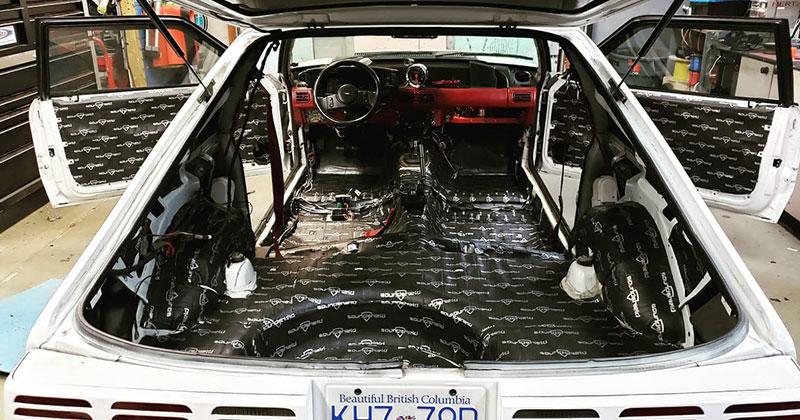There’s no denying that sound deadening is one of the easiest ways to enhance the comfort of your vehicle and improve the performance of your car audio system. Many kinds of deadening have been available over the years. Let’s take a close look at some of the most common technologies and explain the terminology used to define the different sound deadening solutions.
What Are Constrained Layer Dampers?
The most popular sound deadening materials fall into the class of constrained layer dampers (CLD). In most designs, CLD deadening materials are made from a sandwich of a dense and flexible base layer that is bonded to a sheet of thin aluminum. The base layer, in most cases, is made of butyl rubber. Butyl is a synthetic rubber with very low stiffness, so it can bend and mold to the contours of the surfaces it is adhered to. The aluminum layer gives the material a structural component, allowing it to span openings in door panels without sagging.
CLD materials add mass to the objects they’re attached to and reduce their ability to vibrate. The concept is similar to how a heavier piano or guitar string resonates at a lower frequency than one that is very thin and light. Imagine how a bass guitar would sound if you wrapped the E string of a guitar in dense rubber? From a technical perspective, the damping material converts the energy from the sound vibrations into heat, though this happens on a microscopic level.
Once damping material has been added to a large, flat surface like a door panel, a rear fender, the trunk lid or the roof of a car or truck, it’s harder for sound energy outside the vehicle to make that panel vibrate. If the panel doesn’t vibrate as much, less sound will be transferred into the vehicle, and the interior will be quieter.
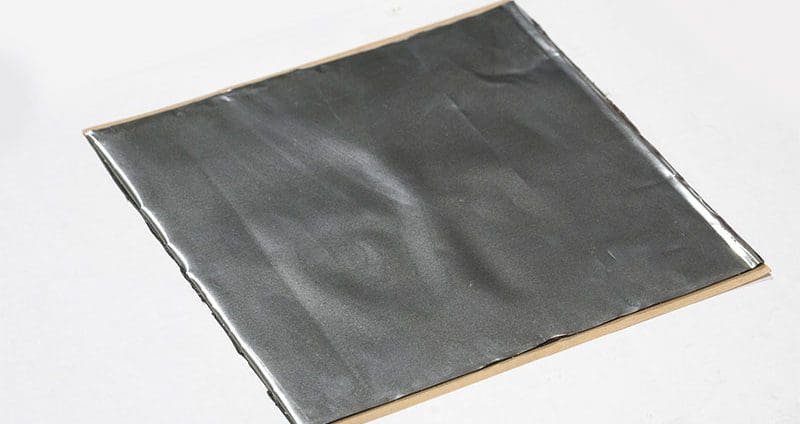
What Are Noise Decoupling Solutions?
The second popular type of sound control product is decoupling materials. In most cases, these are closed-cell foams with a strong adhesive. When applied between the chassis and trim panels, or anywhere that two surfaces contact each other, the foam will help prevent annoying buzzes and rattles.
It’s important to remember when choosing a decoupling foam to make sure that it’s a closed-cell design. You don’t want it to absorb or trap moisture in any way. Trapped moisture can lead to mold, corrosion and damage to the vehicle.
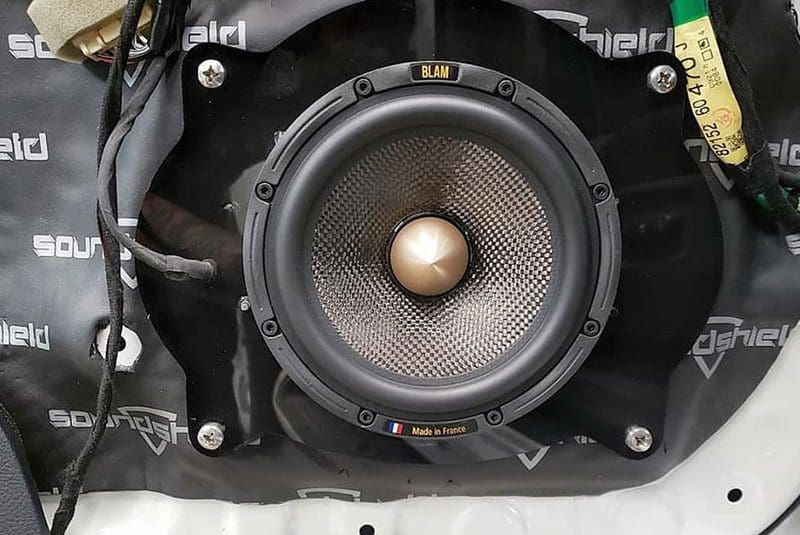
What Are Sound Barriers?
The third and least popular of the sound deadening materials are sound barriers. These products work independently of the vehicle chassis and panels as opposed to being bonded directly to them to reduce noise. Sound barriers typically feature a dense lead or vinyl core that is suspended between two layers of foam. The foam isolates the dense core from the vehicle and allows it to absorb energy in the form of noise. Sound barriers are also good at blocking heat transfer into a vehicle. Many hot rod builders will cover the transmission tunnel where the exhaust runs with a sound barrier to help keep the interior of the vehicle cooler.
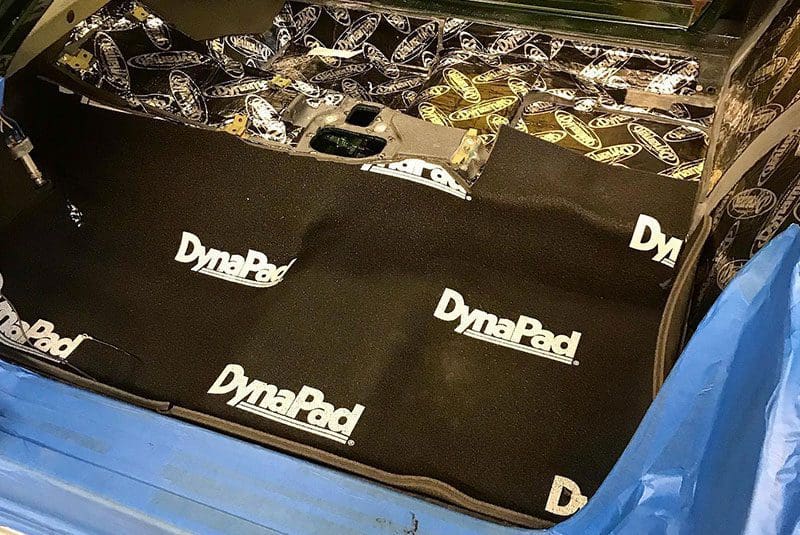
When we mentioned that sound barriers are the least popular, that isn’t because they don’t work well or offer significant benefits. They are fantastic and can dramatically improve the comfort of your vehicle. Because they’re usually installed on the floor of a vehicle, their installation requires that the carpet be removed from your car or truck. This is a time-consuming process as the seats, center console, trim panels and the lower part of the dash need to be removed. If you’re after the quietest and most luxurious driving experience, it’s a worthwhile investment. If you are having a vehicle interior built from scratch, you may want to consider this as part of the upgrade.
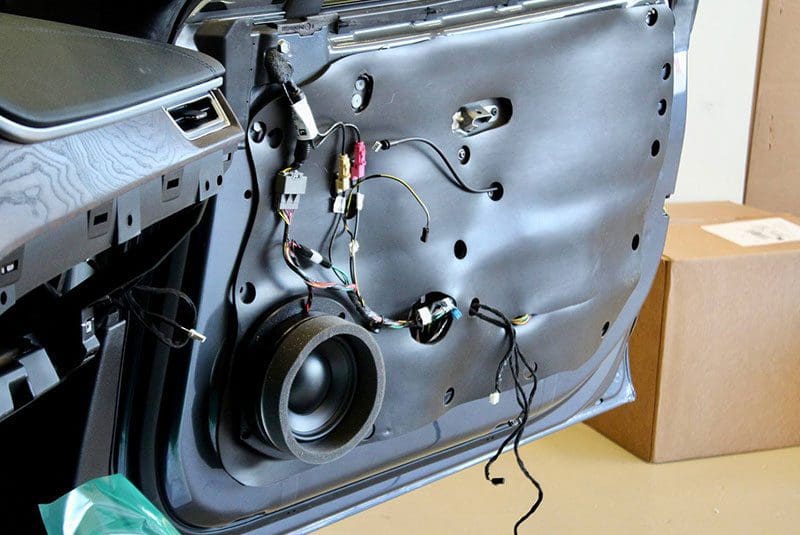
What To Look for When Shopping for Sound Deadening
There are a few things to take into consideration when you’re shopping for deadening materials. The absolute most important criteria are the adhesion properties of the CLD you choose. There have been hundreds of cases where low-quality products have fallen off of door panels and roofs. In some cases, the deadening has melted completely and turned into a tar-like sludge. The results can be incredibly expensive to repair, and upholstery and carpet can be permanently stained by the sticky, goopy mess. Likewise, deadening that falls into the window mechanism in a door car leads to damage.
One tip: If the CLD has a strong odor, you may want to avoid it. Many damping materials that contain bitumen smell bad and have problems staying in place when they get hot in the summer.
Finally, you want to make sure the material you purchase is fire retardant. The last thing you need is your car going up in flames because a spark or heat from a short circuit sets your sound deadening on fire. Get a small sample of the deadening material and try to ignite it with a lighter. It might smolder for a second then go out. Self-extinguishing is the key here.
Understanding Sound Deadening Terminology Makes Shopping Easier
With a basic understanding of how sound deadening technologies work and a grasp of the common terminologies used in the car audio industry, you can now shop for a solution. Dozens of companies offer sound deadening, which comes in different thicknesses and densities. We’ll leave you to work with your local specialty mobile enhancement retailer to choose a product that works for your application.
This article is written and produced by the team at www.BestCarAudio.com. Reproduction or use of any kind is prohibited without the express written permission of 1sixty8 media.

